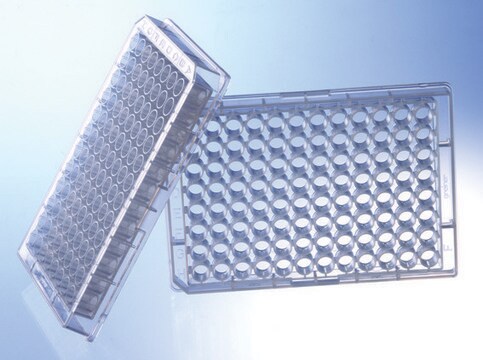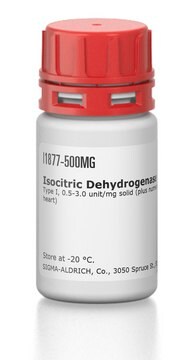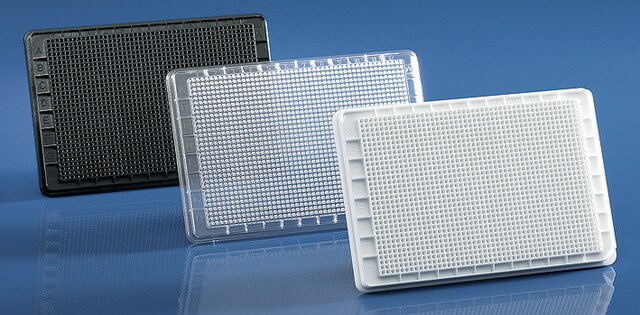M3812
Greiner UV-Star® 96 well plates
flat bottom clear cyclic olefin copolymer (COC) wells (cycloolefine)
Synonym(s):
96 multiwell plates, 96 well microplates, 96 well microtiter plates, 96 well plates
About This Item
Recommended Products
material
cyclic olefin copolymer (COC)
cyclic olefin copolymer (COC)
flat bottom clear cyclic olefin copolymer (COC) wells (cycloolefine)
sterility
non-sterile
feature
lid: no
skirt (F-bottom)
packaging
case of 40 ea (internal packs of 10)
manufacturer/tradename
Greiner 655801
size
96 wells
working volume
340 μL
binding type
non-treated surface
Related Categories
General description
Compatible with Molecular Devices SPECTRAmax 190 and 250 plate readers.
- Ultraviolet transparent multiwell plates from Greiner
- Highly recommended for measurements of DNA and protein concentrations at 260 nm or 280 nm, respectively
- No need for expensive and fragile quartz glass plates
- UV transparent to 200 nm
- Packs of 10
- 40/case (4 x 10 packs)
Other Notes
Suitability
Legal Information
Certificates of Analysis (COA)
Search for Certificates of Analysis (COA) by entering the products Lot/Batch Number. Lot and Batch Numbers can be found on a product’s label following the words ‘Lot’ or ‘Batch’.
Already Own This Product?
Find documentation for the products that you have recently purchased in the Document Library.
Customers Also Viewed
Protocols
Assays that predict passive absorption of orally administered drugs have become increasingly important in the drug discovery process. As previously described by Faller and Kansy such assays provide rapid, low cost and automation friendly methods to measure a compound’s passive permeability.
Assays that predict passive absorption of orally administered drugs have become increasingly important in the drug discovery process. As previously described by Faller and Kansy such assays provide rapid, low cost and automation friendly methods to measure a compound’s passive permeability.
Assays that predict passive absorption of orally administered drugs have become increasingly important in the drug discovery process. As previously described by Faller and Kansy such assays provide rapid, low cost and automation friendly methods to measure a compound’s passive permeability.
Assays that predict passive absorption of orally administered drugs have become increasingly important in the drug discovery process. As previously described by Faller and Kansy such assays provide rapid, low cost and automation friendly methods to measure a compound’s passive permeability.
Our team of scientists has experience in all areas of research including Life Science, Material Science, Chemical Synthesis, Chromatography, Analytical and many others.
Contact Technical Service







